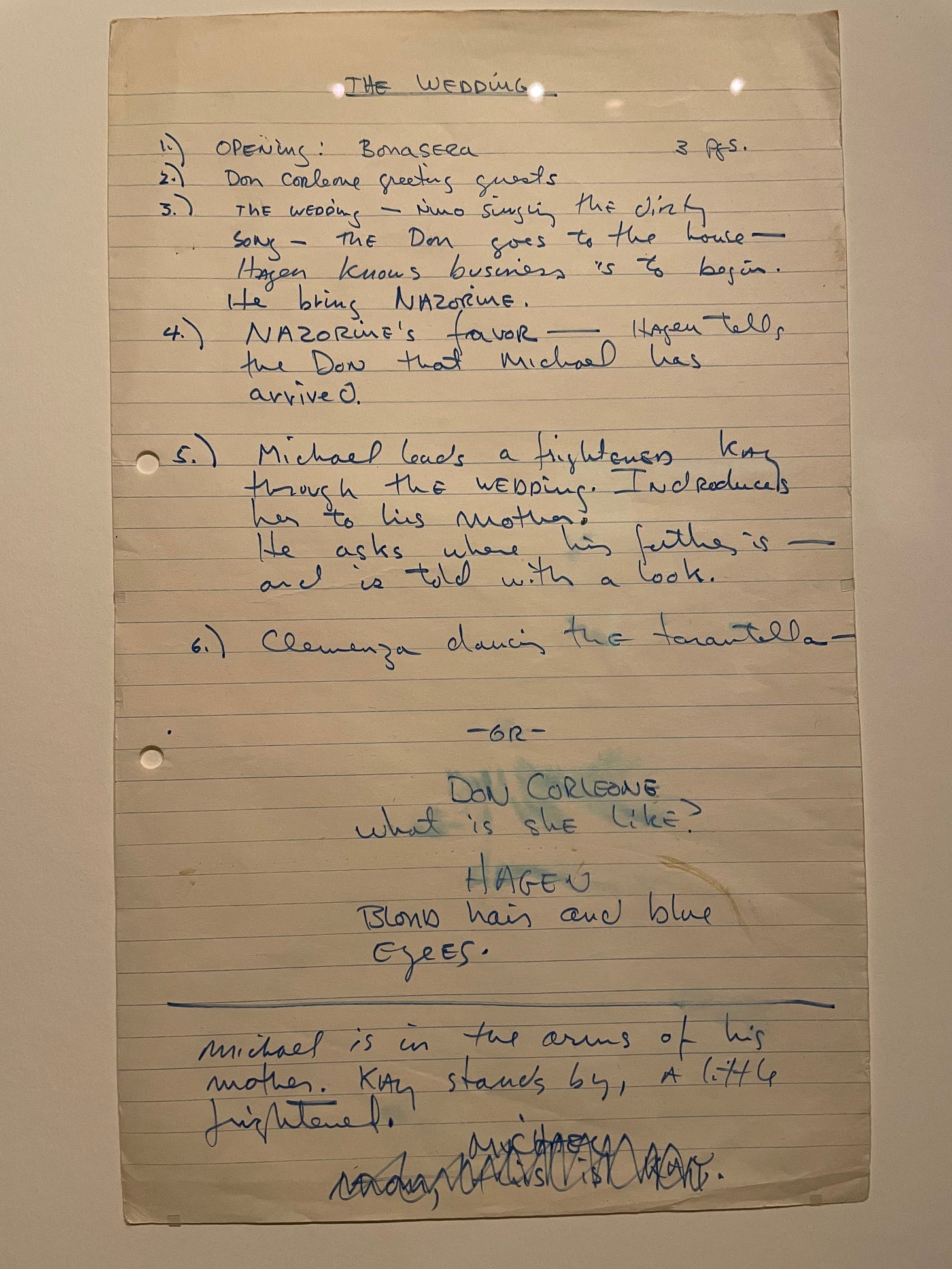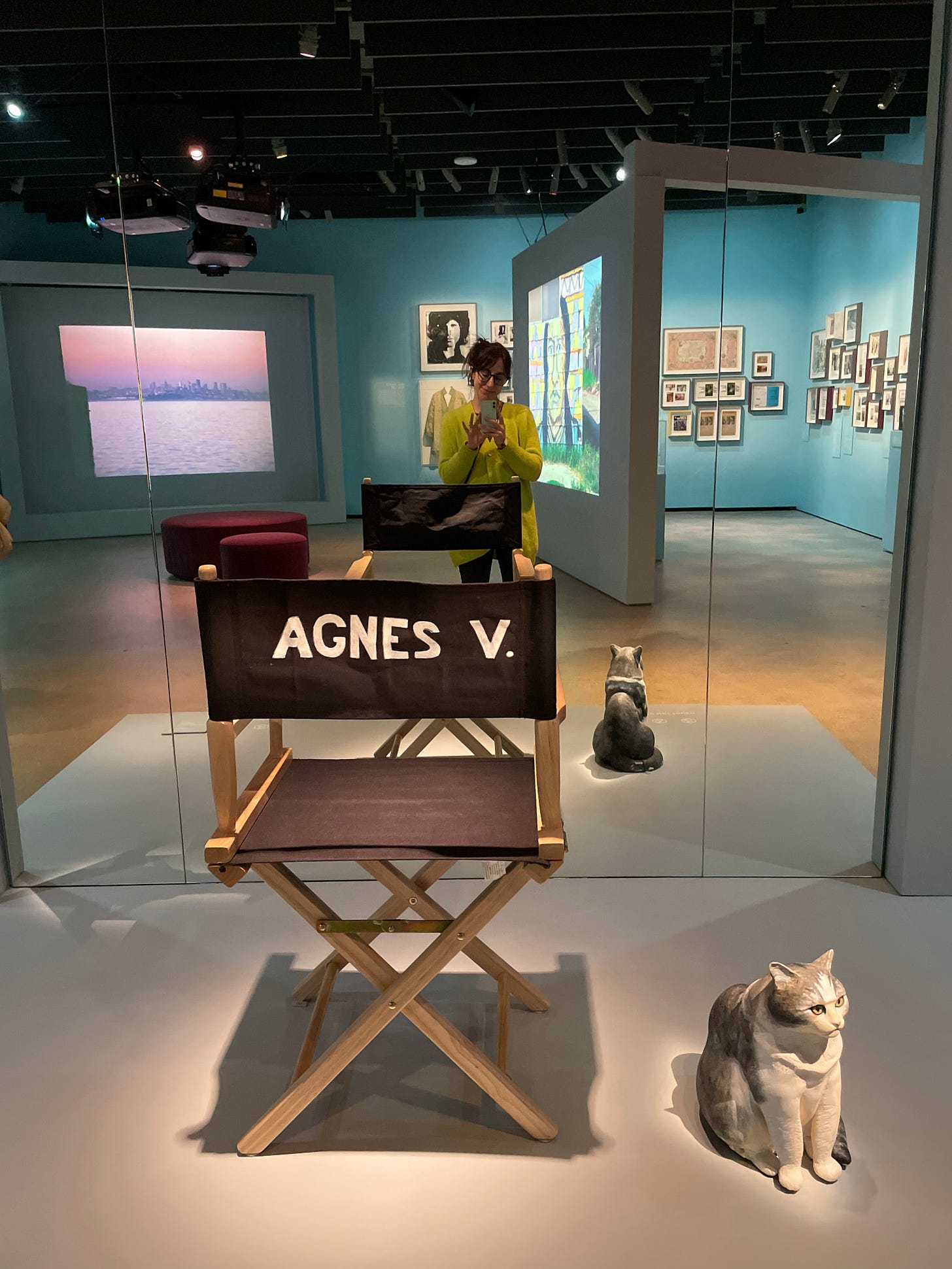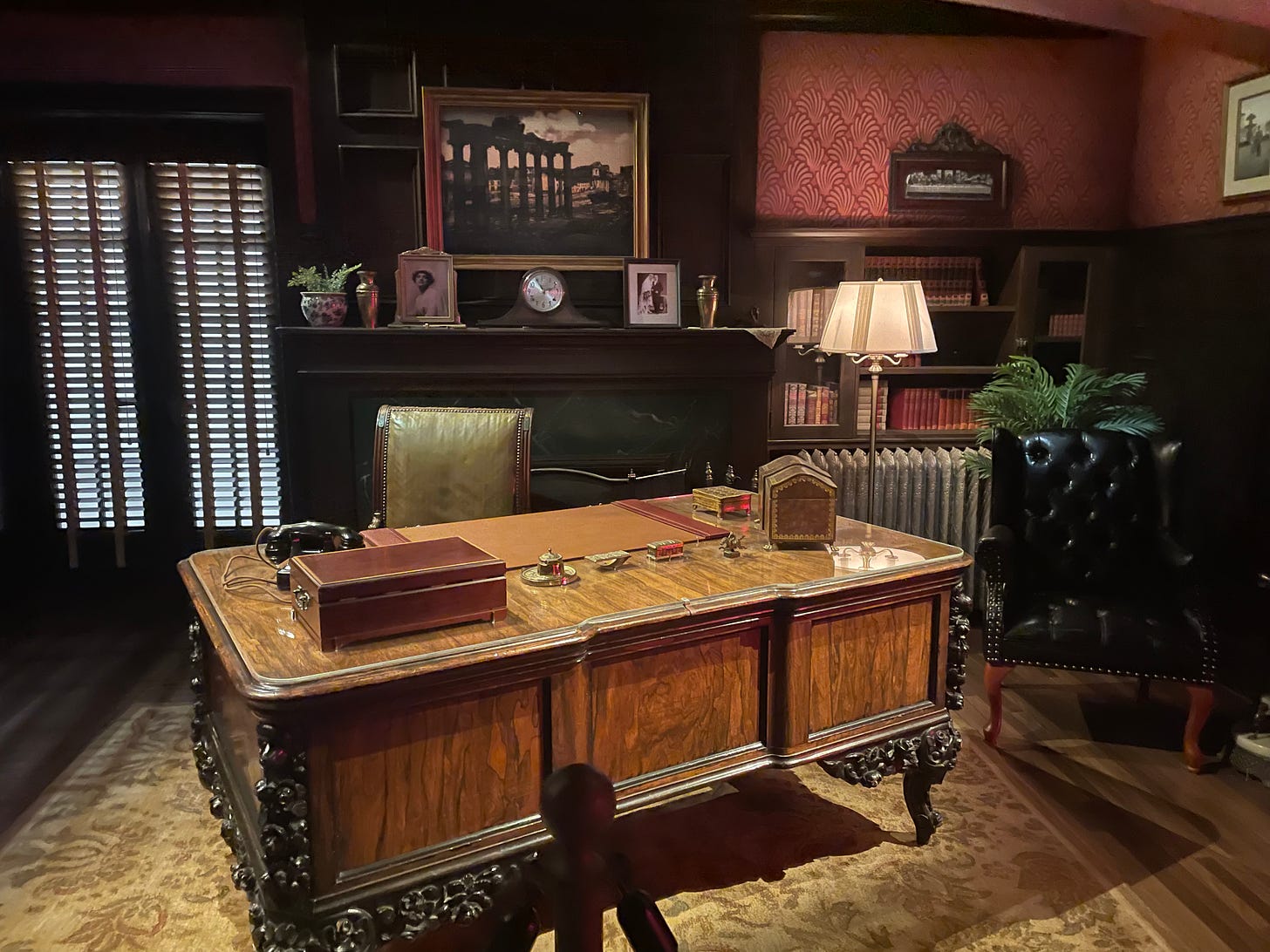To write, you must have money and a room of your own
On solitude, space to create, and finding our voice.
“A woman must have money and a room of her own if she is to write fiction.”
― Virginia Woolf, A Room of One's Own

Yesterday was Virginia Woolf’s death day, the day she walked into a river with stones in her pockets at 59 years old. Merely by coincidence, it was also the day I finished her brilliant nonfiction book, A Room of One’s Own, in which she makes a straightforward and deeply researched argument: In order to write fiction, a woman must have money and a private room to herself.
For nearly all of history, women had neither. Jane Austen wrote Pride & Prejudice surrounded by family, hiding her manuscript whenever somebody came near.1 What would it have been if she didn’t have to hide it? If she could’ve asked a group of other female writers for notes? What else would she have written with the gifts of privacy, space, time, and money?
Almost 100 years since A Room of One’s Own was published, Woolf’s argument rings true for me: It is much easier for me to write my own work when I’m staffed and receiving a weekly paycheck, rather than when I’m developing ideas without a steady income. I consider it a luxury to write from my desk in my bedroom, my kitchen table, or from a coffee shop, but how deeply I crave a private room just for my work. How deeply I crave to be alone with my art.
Today, regardless of gender, it remains so difficult to achieve the basic sense of safety and security created by money and private space. Aspiring writers grasp at minutes and hours in between other jobs. (Virginia Woolf wasn’t arguing for you to have 5 jobs, she was arguing for universal basic income — $500 a year in 1929, or according to Google, about $8,796.49 today.) External factors prevent us from unleashing the full creativity inside of us. It is nearly impossible to create art when you’re living in poverty, need healthcare (if you’re in the USA, the only developed country without universal healthcare), are struggling with the exorbitant cost of housing (again, in the US), feeling overwhelming doubt caused by social media and the influencer economy, and living in a society that almost exclusively values art as a means for profit.
Michelangelo once said, on creating The David:
“I created a vision of David in my mind and simply carved away everything that was not David.”
How many of us relate to that sentiment? I absolutely do. We see our stories in our minds. They’re already alive inside us. The difficult work lies in pulling them out, in creating the time and space to let them emerge. That is the ongoing fight. That is what money and a room of one’s own can achieve.
If it’s only with solitude, safety, security, space, and time that our ideas can emerge, will art always be for the wealthy? Of course, there are many exceptions. J.K. Rowling was broke when she wrote Harry Potter from a cafe in Edinburgh. Incredible works of fiction have been created without money or a private room. But if both were more accessible, what depths of new art may emerge?
So what do you do if you have neither and you haven’t been struck with a genius idea about a wizard boy? All I can offer is the best free advice I have: You might not have money or a room of your own, but you can fight each day for time to be alone with yourself.
I’m currently on Chapter 8 of The Artist’s Way. I’ve learned so much from this experience, but perhaps my most profound lesson is that to heal my artistic soul I desperately need time alone for myself. I often get the urge to travel alone, and I do, and I love it. Yet I rarely prioritize solitude in my day-to-day life at home. As I’ve begun finding time each day to be alone and connect to myself, I feel a rebirth of creative inspiration. New opportunities have appeared out of the blue. I feel that in taking care of my artistic self, the universe is taking care of me, too.
On the need for solitude, Julia Cameron so perfectly writes this:
We strive to be good, to be nice, to be helpful, to be unselfish. We want to be generous, of service, of the world. But what we really want is to be left alone. When we can’t get others to leave us alone, we eventually abandon ourselves. To others, we may look like we’re there. We may act like we’re there. But our true self has gone to ground.
An artist must have downtime, time to do nothing.
Defending our right to such time takes courage, conviction, and resiliency. Such time, space, and quiet will strike our family and friends as a withdrawal from them. It is.
For an artist, withdrawal is necessary. Without it, the artist in us feels vexed, angry, out of sorts. If such deprivation continues, our artist becomes sullen, depressed, hostile. We eventually become like cornered animals, snarling at our family and friends to leave us alone and stop making unreasonable demands.
We are the ones making unreasonable demands. We expect our artist to be able to function without giving it what it needs to do so. An artist requires the upkeep of creative solitude. An artist requires the healing of time alone. Without this period of recharging, our artist becomes depleted.
I’ve experienced exactly what Julia warns of: When I do not spend enough time alone, I abandon myself. I abandon my art. My artist is depleted. The solitude I’ve gifted myself throughout the past 8 weeks has been so essential in returning me to my why. Why do I write?
What are you saying about the world, and why are you saying it? What truth can you reveal that nobody else can? If it’s not coming to you now, don’t overthink it. Just find time to be alone and see what emerges.
This week, can you find time for solitude? Time to simply be left alone?
The need for solitude is part of what led me to start my retreats and workshops. It’s a beautiful experience to be together in community with other writers. But we also take time every day to be alone in meditation. In Yoga. In journaling and introspective writing exercises. If you do not allow yourself to feel the full depth of your emotion, you’re holding yourself back from your full ability as a writer. So we prioritize that as well.
My next workshop is a virtual event on Sunday, April 16. A small group of us will work on rewriting any novels, memoirs, TV pilots, or screenplays that we’re working on. There are several donation-based spots available on a first-come-first-serve basis. If you have a room of your own, please pay and let somebody else grab the spot.
A few recommendations:
✨I loved the Succession season 4 premiere. I’m so sad it’s ending, but after Sunday’s episode, I’m convinced it’s going to go out with a big, expensive, profanity-filled bang. I’ll be following Hunter Harris’ newsletter for her takes.
✨I listened to The Writing Retreat on Libby and I had so much fun. If you love a good thriller, read Julia Bartz’s juicy, surprising, twisted debut novel.
✨I also read Virginia Woolf’s A Room of One’s Own this week, did I mention that?? Of course, I highly recommend it.
✨If you’re in Los Angeles and haven’t been, check out the Academy Museum. Right now there are great exhibits on The Godfather, Agnes Varda, Casablanca, Pedro Almodóvar, and Black cinema from 1898–1971.
The Memoir of Jane Austen, by James Edward Austen-Leigh










Woolf was so wise. I've always been wary of the myth of the struggling artist - that to create Great Things, you must suffer Unimaginable Misery.
Say, Orwell living in poverty and squalor in France and England, which allegedly turned him into the writer that banged out "Animal Farm" and "1984", plus the autobiographical "Down And Out In Paris In England."
But the thing is: he didn't write any of those things *at the time*. He wrote those books later. And I'm not even sure this example counts at all, because he was making a deliberate attempt to learn about life on the poverty line first-hand, so he could write about it. He wasn't trying to escape his privation, he was leaning into it as much as he could bear...
Anyway, every time I hear about the Struggling Artist myth stories, I want to look really hard at them - and when I do, I usually find the Actual Writing didn't happen at the time, and it wasn't quite as simple as "those terrible times forged them into the amazing writers they later became [so you young folk need to get out there and suffer if you want to get really good]".
I also have a personal example to fall back on. From 2015 onwards, I all but lost my ability to write, because of immense stress due to family stuff. It wasn't like I could use writing to escape from what was going on - it was, there was nothing in my tank to start with. It was all gone, all driven out by the incredible pressure. And it took me years, and much happier circumstances, before all that voice I wanted to write with started to come back. But at the time, I thought I was done, end of career. (One Substack newsletter later, I'm starting to think otherwise.)
So yes, absolutely yes to what Woolf said. As writers, we're seedlings sprouting new shoots and growing towards the light. So what we need at that time is enough light, enough water, and enough rich soil for our roots. Translated into human experience: we need whatever 'Enough' is for us to keep going without breaking apart.
(This is also why I totally respect writers who don't "quit their cubicle hell to live the dream" as the aspiratonal Instaquotes go, and instead spend a while working part-time, using that security as a platform to build their foundational work.)
But everyone's Enough should look a bit different. We are all unique casseroles of talent, enthusiasm and grit, so the weirder our Enough looks to someone else, the better, I reckon...
Anyway. I'm rambling. As always, you said it perfectly, Ali.
As always, a thoughtful and thought-provoking piece, Ali - it really resonated. Coincidently, just this week I kept turning the phrase 'a room of one's own' over in my head. I am trying to create just that in my small home so I have a space to work and write that feels solely mine. No matter how small or simple, even if it is the same table in a coffee shop, I really believe everyone needs somewhere they can be alone in their thoughts. Probably why I love baths so much!